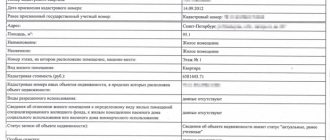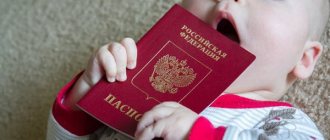Choosing a school is a crucial moment. Here it is important to take into account the location of the educational institution, the child’s capabilities and much more. His future depends on it. Parents should take care in advance about where their child will study. As a rule, there is more than one school in one microdistrict. At the same time, there are rules for admitting children to study, especially if they are going to first grade. Therefore, it is important to know which school is assigned to a particular address. This is where it will be easiest for a future student to get into.
Rights of parents of schoolchildren.
Article 43 of the Constitution of the Russian Federation regulates the right of all citizens of the country, without exception, to free education. State educational institutions are created so that every citizen can send their child to school near their home.
For several decades, there has been a system of assigning schools to specific addresses.
This system was created for several reasons:
- To create an equal workload for each educational institution: to avoid insufficient or excessive numbers of students in different schools.
- So that every child can go to a school that is located near their home. It is safer than daily travel by transport.
- This helps to ensure optimal conditions for the work of teachers, the work of parents of students, and the students themselves.
There are other organizations besides public schools. Non-state schools, lyceums and boarding schools operate under similar conditions.
Most often, such institutions have a bias towards sports, one discipline or another. This allows students to receive all the necessary knowledge and study in depth the subject for which they have an inclination.
Important! The assignment of children to schools is not a prerequisite. Parents have the right to send their child to the school they want.
This right is reserved for legal representatives until the child’s education is completed: clause 1, part 3, art. 44.
But government institutions rarely differ in any way from each other, so a school assigned to a specific site will be the best option for the student.
Based on clause 15, part 1, art. 34 of Federal Law No. 273, parents can also transfer their child to another school at any time.
- How many minutes is a lesson at school: what time do lessons start and end.
- Reduced meals at school: documents for free meals.
- How many lessons in 1st grade: according to Sanpin, in the 1st and 2nd quarters, there should be.
- What needs to be done with your child a year before school: a list of 10 points.
- Going to school without residence permit or registration: how to arrange it and how to get there.
- Moscow first-graders do not need a medical card to enroll in school.
Concepts of permanent and temporary registration when enrolling in school
Lack of registration cannot serve as a reason for refusal to enroll in school - this is stated in Article 5 of the Law “On Education”. The only reason for refusal can only be the lack of places in the chosen school.
Persons with permanent and temporary registrations receive equal rights upon enrollment. B 273-F3 “On Education” states that children are enrolled in school according to their place of residence (permanent registration, Form 8 of the Federal Migration Service of the Russian Federation) and according to the place of actual residence (temporary registration). registration, form 3 Federal Migration Service of the Russian Federation). Therefore, parents of a future first-grader need to fill out documents in advance to confirm the child’s registration in the area of the chosen school.
Children under 14 years of age cannot be registered (temporarily or permanently) separately from their parents. Temporary registration in the desired area is completed by one of the parents. The landlord's consent to the temporary registration of a child is not required. A certificate of temporary registration of a child is issued to the temporary registration address of the parent of the Federal Migration Service of the Russian Federation.
How and where can I find out which school belongs to my residential address?
Parents are wondering: what school do we belong to by registration? There are several ways to find out.
Find websites of schools near your home or education department.
Almost all schools now have their own website, on which they post various information useful for students and their parents (list of documents for enrolling a child,The charter of this institution, other regulatory documents), as well as on the binding of a minor to the place of registration. You can also find all the information you need on this issue on the Department of Education website.
- Go to the registered school of interest or the education department in person.
- The district administration can also help with obtaining information about educational institutions. You can call there or come in person.
- Ask neighbors who have school-age children. This option is more suitable for residents of apartment buildings.
- Try to remember where the last elections were held. They usually take place at a certain school for residents of houses geographically associated with it.
How else can you find out which school your child will go to according to his registration?
Are there other ways to find out which school is registered?
You can try to send your child to secondary education not according to registration, but only if there are free places there.
Territorial distribution among schools is necessary to regulate the flow of children to each of the nearby institutions.
Every year, the education department sets a start date for accepting documents for study, usually in January or February.
Parents of children registered at addresses assigned to the school have the right to submit documents until July 31, in accordance with current legislation.
All educational institutions are required to provide education to children living in the area assigned to them.
According to the law, enrollment in educational institutions is processed within seven days from submission of the application and documentation package. The Education Department has the right to allow a child to study at school if he is not yet 6.6 years old or is already more than eight years old. In addition, if your school refused to submit documentation due to a lack of places (according to clause 5 of Order No. 32 of the Ministry of Education, Article 67 of the Federal Law), then you have the right to choose another school of your choice.
There are many ways to obtain this information:
- find an educational institution on the Internet, to do this you need to look at the websites of educational institutions in your city;
- a direct visit to a nearby school will also give results; there, before admitting preschoolers, they post information on notice boards about which streets are adjacent to this educational institution;
- if you live in an apartment building, you can ask your neighbors where their children go to study;
- Remember which school you went to in previous elections to vote, because it often happens that polling stations are set up in educational institutions in your area.
Having studied the above information on how to find a school that belongs to your area, you can now choose the method you prefer and find an educational institution yourself. Another important thing: if your school is public, then the fees (entrance fees) that you may be asked to pay are not mandatory.
For information of interest, you can contact the institution or higher education authority supervising the territory directly. Also, all information about the procedure and progress of admission should be reflected on the school website. It is the latter access option that is more preferable, since the online mode provides for constant updating of not only regulatory, but also current documentation: admission plan, deadlines, list of required documents, enrollment orders, etc.
Features of admission to gymnasiums and lyceums
Is it possible to get into a gymnasium without registration? When entering a gymnasium or lyceum, the registration problem may be joined by the need to pass a test or interview. Gymnasiums implement more complex educational programs compared to regular schools.
In most of them, many subjects are studied at an advanced level. The management of gymnasiums and lyceums is interested in the priority admission of children with good learning abilities and a developed outlook.
Almost all gymnasiums organize preparatory courses for future first-graders. It is worth enrolling your child in them, as this will allow him to adapt to the school community. At the same time, attending courses can serve as some guarantee of priority admission to first grade.
Even if a first-grader fails to complete the assignments, the administration has no right .
If your child’s intellectual abilities are “not high” or he doesn’t really want to study, it is better to choose a regular secondary school. It will be difficult for him to study at the gymnasium, and he may fall far behind the program.
You can learn how to obtain a certificate of registration of a child at the place of residence in Form No. 8, as well as a certificate of registration in Form No. 9 from our articles.
Can a child be refused admission to school if his home is territorially assigned to that school?
No, if the house where the child lives and where the child is registered is territorially assigned to the corresponding school, then neither the director nor his deputy has the right to refuse admission.
In densely populated cities, this problem may arise. This may be due to the fact that the vacancies were offered to other students who wanted to enter the school “through connections.”
But it is important to understand that if the child’s address is assigned to this particular school, but the parents are told that there are no places, then they should not give up and go knocking on other doors. You need to go to the local administration and file a complaint against the school management, arguing that the child should study there territorially
You need to go to the local administration and file a complaint against the school management, arguing that the child should territorially study there.
If they don't accept
What to do if children are not enrolled in school according to their registration? Each school located in any district of the city has a territory assigned to it. All school-age children living in this area by registration must attend this school .
The educational institution is not only obliged to accept a child for education even if there are no available places, but is also responsible for
providing educational services to all children .
Refusal to admit a child who is registered in the given area is a direct violation of the law.
But practice shows that parents are often refused to admit their child to study.
Such cases are especially common if the school is prestigious. It is quite difficult to get into such an educational institution, but it is quite possible on completely legal grounds.
If the administration does not accept the child, citing a lack of places, you must request a written refusal and at the same time warn about your intention to contact the Ministry of Education.
Lack of places cannot be a reason for refusal, and there are no other reasons at all. The administration can and should take measures to provide for all children registered in the area where the school is located.
You can suggest to the management to move the class to a larger room where it will be possible to accommodate a larger number of students, and divide the class into two parallels.
If the conflict is not resolved in this way, feel free to file a complaint with the organizations controlling the educational institution (Department of Education, Office of Education) or directly with the Ministry of Education of the region.
If you receive a refusal, ask the administration to familiarize you with the Charter of the educational institution. This document contains all the rights and obligations of students, teachers and administration of the educational institution.
You will probably find in it all the reasons for admitting your child to this particular school , and the conflict situation will be resolved. To ensure that your child is enrolled in an educational institution, you can submit documents to two schools at once.
If there are no places at the school near your home, there will be one more option left.
Attaching houses to certain schools on a territorial basis and the lack of places in the desired educational institution can create problems with admission .
Parents should find out in advance all the information about their child’s enrollment in school by registration and take the necessary measures so that he begins education on September 1st.
+7 (Moscow) +7 (St. Petersburg)
Source
Where to find information about schools
Territorial affiliation with a school is not a new phenomenon. There has long been a practice of assigning one or another secondary educational institution to a number of apartment or private buildings. This is done to more evenly distribute students among educational institutions, so that one does not have a shortage, and another does not have an oversupply of students.
Such territorial affiliation with a particular school has existed for several decades and it serves to:
- children received primary and secondary education in close proximity to their place of residence, without wasting time on tedious trips to the place of study;
- to evenly distribute all students in the city among educational institutions, avoiding shortages or excessive overcrowding of schools;
- provide optimal conditions for conducting the educational process for students and teachers.
Data on territorial divisions and the projected number of students must be prepared before March 1. They are published on websites on the Internet. At the same time, municipal authorities also ensure registration of school-age children living in each microdistrict.
Starting from April 1, parents can enroll their child in school at their place of registration. Until July 31, they have priority for enrollment. children from other areas can be taken to the institution with the same rights .
If only the proximity of the institution matters to parents, then it is enough for them to find out which school the house at the address where they live belongs to.
This is not difficult to do. It is only important to approach the issue seriously in order to avoid unpleasant surprises and have time to enroll your future first-grader.
How can I find out which school a student's address belongs to? There are several ways:
On the website of the educational institution
You can go to the website of the educational institution. As a rule, such information is available there. At the same time, you can find out what pros and cons the institution has, the composition of the teaching staff, additional opportunities for children, the list of documents required for admission, and so on. Since there are often situations when there are several institutions at one address, you should review all their pages.
The website of any school must contain information about the territorial reference of houses. If you cannot find this information, you can always call the phone numbers listed in the contacts of the educational institution.
Ask your neighbors
Living in a certain area, it does not happen that the children of your neighbors in the apartment, entrance, or other house do not go to school. You can find out from them at any time which school your territory is associated with.
Check with the district administration
You can visit in person and find out the information you are interested in from the district administration. Or you can go to the official website of this body and already there find out which streets belong to the educational institution or houses that are assigned to a specific place of study. There is definitely such information here and you shouldn’t have any problems.
Visit the school directly
You can personally come to the school that interests you and ask there about what houses are attached to this institution. Parents have every right to do this. Additionally, you can learn about admission rules, teachers, number of places and other important aspects.
Remember where you went to the polls
If you have ever voted, you can simply remember where you went to vote. It's simple and you don't need to have a great memory. Most often, during elections, polling stations are located in schools, which are located in the area where you live. Parents can simply repeat the trip to this building, but only with the goal of enrolling their child in first grade.
Right to education
All citizens of the Russian Federation have the right to free general education. This right is guaranteed by Article 43 of the Constitution of the Russian Federation. General education is divided into preschool, primary, basic and secondary. The Law “On Education” stipulates that it is generally available and free of charge.
Choosing a school, gymnasium or lyceum for a child is the decision of the parents or guardians. When choosing, you should take into account the characteristics, abilities and preferences of the future student. It should be remembered that in some gymnasiums there is a competition and first-graders must pass entrance exams.
At the same time, the responsibility of parents is to help the child realize his right to receive general education. To do this, the family must provide the student with stationery, school uniform, submit documents for admission on time and control the visit to the educational institution .
How to get into 1st grade in 2021: new rules
You need to “look” for an answer from an educational organization in the MFC or on the portal “State and municipal services (functions) in St. Petersburg” (when submitting an application through the website - in the “Personal Account”). An invitation may come from several schools specified in the application, but you must select only one. It is there that one of the parents (legal representative) must personally provide the necessary documents within the period specified in the invitation.
At stage I it is:
- child’s birth certificate (original or notarized copy);
- passport of the applicant (legal representative);
- document confirming the benefit (if any);
- a document confirming the fact of residence in the assigned territory. If the parent’s passport has a stamp indicating permanent registration in the assigned territory, no additional paperwork is required.
At stage II it is:
- child’s birth certificate (original or notarized copy);
- passport of the applicant (legal representative).
After submitting documents to the chosen school, the child is automatically removed from the lists of others who also sent an invitation. Enrollment in the first grade is issued by order of the educational organization within 3 working days after receiving the documents.
Grandparents and other relatives are not the child’s legal representatives. They cannot submit applications and documents. To perform this action, a notarized power of attorney is required. If the application is made on behalf of the father, not only the father, but also the mother can come to submit documents to the school. And vice versa.
The Law “On Education in the Russian Federation” No. 273-FZ dated December 29, 2012, in Article 67 states that children begin to study at the age of 6.5 years, but not later than they turn 8 years old. All educational institutions are subject to the instructions of this law, therefore:
- schools in St. Petersburg accept children aged 6.5 to 8 years;
- If parents want to send their child to study earlier or later than the specified dates, they write an application addressed to the director, who makes a decision: to accept the child or refuse admission.
You will have to choose a year or two before the start of registration of first-graders for the next school year. In educational organizations, preparatory courses (“preparatory courses”) are held for future young students. Such courses last one or two academic years until the cherished first of September, when children go to first grade for the first time.
Before choosing, it is worth finding out which school the house at the address in St. Petersburg is attached to in 2021. Since 2012, the federal law “On Education” has enshrined the territorial principle of admitting children. Each educational organization is assigned a specific territory. The children and their parents living there will have documents accepted earlier than those who do not have a registration.
What actions will help you make the right choice:
- Check the class size (shortage or oversupply of students).
- Compare the quality of education according to the number of Olympiad winners, according to the results of the Unified State Examination and the Unified State Examination - this is open data, it is available on the website of the educational organization.
- Assess the condition of the school (external and internal appearance, repairs, availability of good facilities).
- Look at the training schedule (how many shifts children study).
- Are there extended day groups and how do they work?
- Gather feedback from parents and students.
If you are satisfied with your registration school, you are lucky. According to the law, the territory assigned to schools in St. Petersburg in 2021 automatically obliges them to accept for education those children who live on it. Applications from parents of children who want to enroll in an educational institution other than their place of residence will begin to be accepted only from July 1.
Now first-graders are not enrolled in school upon a personal visit to the director’s reception office - the rules for admission to school in 2020-2021 in St. Petersburg provide for two ways to submit an electronic application:
- through the State Services portal;
- through MFC specialists.
At the MFC, an electronic application is filled out by a specialist from the multifunctional center.
What documents should a parent take with them:
- passport;
- original birth certificate or document confirming the applicant’s relationship with the child.
An MFC employee will fill out the application and give the parent a receipt indicating how to find out about the status of the application and the result of the application.
Subtleties of enrollment in an educational institution
Children are accepted for study in first grade from 6.5 to 8 years old. According to the Constitution of the Russian Federation, they have the full right to receive free secondary education. A child’s health problems cannot be an obstacle to enrollment if his mental state allows him to attend classes and study.
Secondary education in our country is compulsory. Parents cannot prohibit their offspring from attending school. They are obliged to provide him with training, otherwise careless mothers and fathers will face problems from various government services . But they can independently choose any educational institution they like.
If a future student is well developed at the age of six, then he may well be accepted.
But parents are usually not advised to send their children to school at too young an age. They may not be ready for this, not so much intellectually as emotionally. And for successful studies, it is important that the student feels comfortable in the classroom .
All this, however, does not apply to private institutions where training is provided for a fee. These institutions may have very different rules, so this option should only be considered if the parents are doing well financially. However, they are not obliged to send their child there, even if this private school is nearby.
Applying to two schools at once
For confidence and reliability, you can apply to two schools at once. This is not prohibited by anything, and you will be protected by this. You need to remember the deadlines, so you need to submit documents to one school before June 30 “according to registration” so that you have the right of priority. For the second one, documents will need to be submitted from July 1st.
How to choose from several schools?
- See the ranking of educational institutions in your city. The higher a school is ranked, the better;
- Visit all schools in person, meet the principal and teachers. Form your subjective opinion;
- Read reviews about schools on the Internet. This way you will be more likely to learn about problematic issues.
Registration of temporary registration in the area assigned to the chosen school increases the likelihood of admission. At the same time, the right of first admission to the school at the place of permanent registration is retained. In this case, you can submit applications from January 20 to June 30 to two schools. Refusal to enroll in a school can only be due to lack of available places.
Who shouldn't worry about going to school?
According to Part 1 of Article 55 of the Law “On Education”, admission to educational institutions is carried out on the principles of equal rights. The exception is beneficiaries, the list of which is fixed in the same law.
Children receive benefits when entering school:
- employees of the Ministry of Internal Affairs, police and authorities equivalent to them;
- those who died or died from injuries received while performing official duties of employees of the Ministry of Internal Affairs, police and authorities equated to them;
- dismissed from the Ministry of Internal Affairs, police officers who received injuries during the performance of official duties that do not allow them to continue serving;
- military personnel, according to the place of residence of their families;
- military personnel who died (died) during their military service.
Children whose sisters or brothers study at an educational institution also have the right of priority enrollment so that the family can study together. The full list of categories with the right of priority enrollment is given in Form 3 “On Education in the Russian Federation” and the Order of the Ministry of Education of the Russian Federation.
After beneficiaries and children enrolled by registration, free places are filled with children from other districts on a competitive basis, if there are still free places. Beneficiary children also still have priority.
You may also be interested in: What is the difference between Moscow registration and Moscow region registration.
As a rule, documents for enrollment in school are submitted from January 20 to June 30, for children in preferential categories - from December 15 to January 20. If classes are not filled after these dates, then applications for the remaining places begin on July 1. You also need to clarify this information with the school you want to join.
If you did not have time to submit documents to the educational institution on time, your child will be accepted only if there are free places. And keep in mind that in this case, all the benefits that you had are lost.
Is it required by law?
Do I need a child's registration for school?
specific requirements for a child to be registered for admission to school in the legislative acts of the Russian Federation.
The new Law on Education secured for parents the right to choose an educational institution at their request, regardless of the child’s place of residence and his registration.
However, assigning this right to citizens of the Russian Federation, legislators thought out a mechanism for regulating the occupancy of educational institutions by introducing separate admission requirements on a territorial basis.
According to the requirements of Rosobrnadzor and Order of the Ministry of Education and Science dated January 22, 2014 No. 32, first of all, the school must provide places for children living in the area of its location.
Therefore, administrations began to issue local acts, according to which, in order to be admitted to a school, it is necessary to document that the child lives next to it.
According to the requirements of the law and local acts of the educational institution, children have priority right to admission
- police officers;
- military personnel;
- registered in the area where the school is located.
Read on our website about the procedure for registering children, including depending on the form of ownership of the residential premises, as well as about fines for the absence or late registration of a minor.
How to determine in advance which school a child will go to according to his registration?
Device without registration
Will I need a certificate of child registration for school? And how to get to a school without registration? The Ministry of Education and Science, in its Order on the rules for admission to schools, sets the deadline for admitting children who do not live in the territory assigned to them from July 1 to September 5 of the current year.
Until this time, children registered in the assigned territory (list A) are accepted.
If at the time of the end of admission of children by registration there are still free places , the formation of a list B begins. The child, if there are free places, must be accepted without hindrance.
Therefore, there is a chance to get into an educational institution without registration. But if the school is prestigious and in demand, it is extremely small.
This option is inconvenient in terms of travel time and in terms of the safety of your child.
The ideal option would be to register temporarily at your place of stay in the desired area. Temporary registration can be obtained from relatives, friends, or with the participation of intermediary companies.
What school is your house assigned to?
- Admiralteysky
- Vasileostrovsky
- Vyborg
- Kalininsky
- Kirovsky
- Kolpinsky
- Krasnogvardeisky
- Krasnoselsky
- Kronstadt
- Resort
- Moscow
- Nevsky
- Petrogradsky
- Petrodvortsovy
- Seaside
- Pushkinsky
- Frunzensky
- Central
- Mathematics (28)
- Physics (19)
- Computer Science (10)
- Chemistry (14)
- Biology (9)
- Medicine (5)
- English language (71)
- German language (21)
- French (20)
- Other languages (18)
- Art and aesthetic education (21)
- Law (7)
- Cadet classes (17)
- Sports school (6)
- Primary school (25)
- Children with special needs (44)
- Other (21)
- Private school (69)
The waiting period from the moment you submit your application until you are invited to apply (or receive a refusal) to the school depends on the stage. At the first invitation to the school, parents will have to receive no earlier than 30 working days from the start of admission, but no later than 45 days from the date of submission of the application. On the second - no earlier than 10 days from the start of admission, but no later than 45 days from the date of submission of the application.
Sources
- Khabrieva, T. Ya. Migration law of Russia. Theory and practice: monograph. / T.Ya. Khabrieva. - M.: Jurisprudence, 2008. - 206 p.
- Shevchuk, Denis Audit / Denis Shevchuk. - M.: AUTHOR, 1992. - 333 p.
- Yuri, Fedorovich Bespalov Cases of inheritance: some controversial issues of law enforcement. 2nd edition / Yuri Fedorovich Bespalov. - M.: Prospekt, 2014. - 700 p.
- Collection of Law and Economics in the Modern World. Issue V / Collection of articles. — M.: AUTHOR, 2021. — 296 p.
- Shadura, A. A. Dictionary of terms and concepts in the field of accounting and registration of real estate rights: monograph. / A.A. Shadura. - M.: Publishing solutions, 1977. - 101 p.








